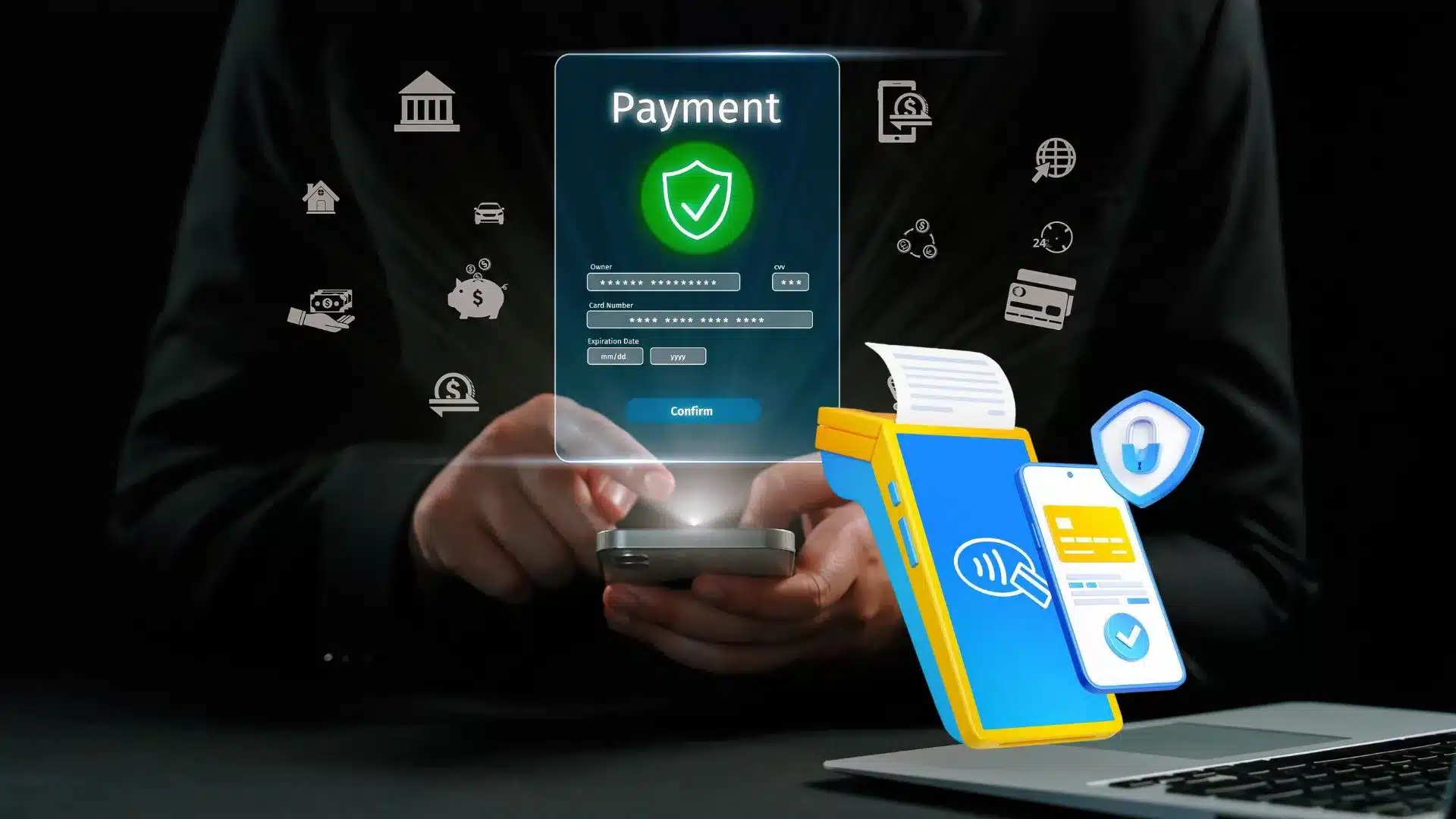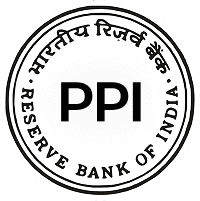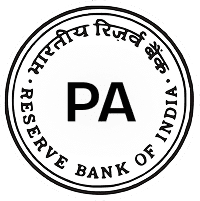Introduction
Business today easily crosses borders. If you sell products or services, your customer may be in New York, Berlin, or Singapore. You need a way to collect their payments safely and in a currency that works for them. A local payment gateway is not enough; you need access to a foreign payment gateway.
Foreign payment gateways help you accept international payments. They matter whether you’re a freelancer billing global clients, an exporter shipping goods, or a SaaS startup charging customers in dollars or euros. Without them, collecting money from outside India becomes slow and complex.
However, international payments come with rules. The Reserve Bank of India monitors every cross-border transaction. RBI regulations ensure money enters India legally, taxes are accounted for, and fraud is under control. For you, this means you cannot sign up with any global service without checking if it meets RBI guidelines.
If you want your business to grow globally, you need to understand how these rules work. This guide walks you through what a foreign payment gateway is, why Indian businesses depend on it, and how RBI regulations shape the way you accept money from abroad.
What is a Foreign Payment Gateway?
A payment gateway is the tool that lets you collect money online. It connects your customer’s bank or card network to your business account and ensures the transaction is secure.
A domestic payment gateway handles money only within India. It accepts payments in rupees and works with Indian banks and cards. For example, if you sell online within India using providers like EnKash, Razorpay, or PayU, you’re using a domestic payment gateway.
A foreign payment gateway processes international transactions. It allows your business to accept money in foreign currencies and from cards issued outside India. When a client in the US pays you in dollars through PayPal or Stripe, that’s a foreign payment gateway at work.
For your business, the difference comes down to scope. A domestic gateway keeps you within Indian borders. A foreign gateway opens doors to global clients and ensures you can settle payments across countries. This capability is essential for businesses serving international markets.
Understanding Payment Gateway License in India
If you plan to accept international payments at scale, you need to understand how licensing works in India. RBI regulates who can collect customer money and how settlements reach your account.
What a Gateway Does
A gateway is the technology layer that routes transactions to banks and card networks. It secures the transaction but does not hold customer funds.
What an Aggregator Does
An aggregator onboards merchants, collects customer money, keeps it in escrow, and settles payouts. Since it handles money, the RBI regulates it more strictly.
License vs Authorization in Simple Terms
A gateway provides technology and partners with a regulated entity for funds flow
An aggregator needs RBI authorization to collect and settle funds. It must meet net worth norms, escrow rules, audits, KYC, and governance standards
Why Foreign Players Use Indian Partners
Foreign providers serve Indian merchants through Indian partners that hold authorization and banking arrangements. This keeps onboarding, KYC, data, and repatriation aligned with RBI rules. Direct setups without a local compliance framework risk blocked transactions.
How Startups Should Approach This
- Decide your role: If you build pure technology, operate as a gateway, and partner with an authorized aggregator
- If handling funds: Seek aggregator authorization. Prepare capital, risk controls, KYC, escrow with a scheduled bank, and audit policies
- Build compliance into your product: Map purpose codes, set refund and chargeback flows, and document data security
- Test with small volumes: Validate reconciliation, settlement times, and dispute handling before scaling.
Why Indian Businesses Need International Payment Gateways
If your customers are outside India, you need a reliable way to receive payments. A domestic gateway cannot serve this purpose; an international payment gateway provides the essential link to reach global clients.
Different types of businesses rely on international payment gateways for specific needs:
- Freelancers and Service Providers: If you design, code, or write for clients in the US or Europe, you need to bill in their currency and receive money quickly. International gateways enable seamless invoicing for overseas employers.
- SaaS Startups: These businesses depend on international gateways to charge monthly or yearly subscriptions. Customers abroad expect to pay in dollars or euros, and global payment systems make this possible.
- Exporters: Online sales require secure payment processing in the buyer’s local currency. International gateways enable foreign buyers to complete purchases confidently.
- Other Service Businesses: Consultants, educators, and travel operators also benefit significantly. Whether you teach students in another country or book services for international tourists, cross-border payment support becomes essential.
Without RBI-compliant systems, these transactions become difficult to manage. Delays, blocked payments, and compliance issues can severely impact your business operations. This makes it crucial for Indian companies to choose international payment gateways that follow RBI rules.
RBI Rules and Guidelines for International and Foreign Payment Gateways
Why RBI Regulates Payment Gateways
The Reserve Bank of India monitors how money moves in and out of the country to prevent fraud, control foreign exchange, and ensure legal transactions. If you accept money from abroad, you must comply with these regulatory requirements.
The Payment Aggregator Framework establishes clear guidelines: any aggregator that processes online payments needs RBI approval. Gateways that only provide technology do not require separate authorization but must partner with regulated entities.
Why the 2020 Framework Changed the Market: RBI introduced formal authorization requirements for aggregators, including minimum net worth standards, escrow rules, enhanced KYC procedures, and regular audits. Unregulated operators either paused services or partnered with authorized entities. This resulted in clearer settlement timelines, better refund handling, and improved standards across the ecosystem.
Impact on International Payments:
- More predictable settlements through regulated escrow and defined cycles
- Longer onboarding processes due to enhanced verification checks
Cross-border flows now route through regulated partners and approved settlement banks - Short-term operational friction increased, but long-term reliability improved significantly
Action Items for Your Business:
1. Verify your provider has a valid RBI authorization
2. Understand their escrow, settlement, refund, and chargeback processes
3. Review their cross-border flow mechanisms, purpose code mapping, and repatriation timelines
4. Prepare all required documents to expedite the onboarding process
Specific RBI Guidelines for International Payment Gateways
When using a foreign gateway, several key compliance requirements apply:
- FEMA Compliance: All cross-border payments fall under the Foreign Exchange Management Act. Every international inflow must adhere to FEMA regulations.
- Settlement Timelines: Foreign earnings must be repatriated to India within RBI-specified deadlines. For instance, PayPal requires users to withdraw funds to an Indian bank account within designated timeframes.
- KYC Requirements: Payment gateways must verify the identity of every business before processing payouts, following enhanced due diligence procedures.
- Permitted Business Categories: RBI restricts certain goods and services from using international gateways. Verify that your business activities fall within approved categories.
Recent Regulatory Updates
RBI frequently updates these regulations to address emerging challenges. Recent changes include stricter fund transfer deadlines, enhanced compliance checks, and more rigorous onboarding processes. While 2FA is mandatory for domestic online payments, cross-border transactions follow card network and RBI-specific norms.
These regulatory controls serve dual purposes: protecting both businesses and customers while ensuring international payments remain secure and compliant with India’s financial framework.
How Indian Businesses Can Use International Payment Gateways Legally
Accepting payments from abroad requires strict adherence to RBI regulations. Non-compliance can result in frozen funds and legal complications that severely impact your business operations.
Essential Legal Requirements
1. Establish Proper Business Registration: You must operate through a legally recognized business entity. Whether you function as a sole proprietor, a partnership, or an incorporated company, RBI requires valid registration documentation before permitting foreign payment collection. Ensure all business licenses and registrations are current and properly documented.
2. Select RBI-Compliant Payment Providers: Choose payment gateways that maintain full RBI compliance. Many global providers (such as PayPal and Stripe) work with authorized Indian partners to meet regulatory requirements. This partnership model ensures you can safely and legally collect payments from international clients while maintaining compliance.
3. Obtain Necessary Licenses for Direct Processing: If you plan to build and operate your own payment platform, you must secure payment aggregator authorization from the RBI. Gateways, as pure tech providers, must partner with authorized entities. Direct transaction processing without proper authorization is prohibited and can result in immediate service suspension.
4. Maintain Tax Compliance: International payments qualify as export income under Indian tax law. You must:
- Report all foreign receipts accurately in your tax filings
- Handle GST obligations correctly based on your service type
- Maintain proper documentation for all cross-border transactions
- Follow prescribed accounting standards for foreign exchange transactions.
Implementation Strategy
Following these requirements ensures smooth payment processing, maintains regulatory compliance, and allows you to focus on business growth rather than regulatory disputes. Establish these foundations before scaling your international operations to avoid costly compliance issues later.
Compliance Checklist for Accepting International Payments in India
A structured checklist to help businesses stay compliant, efficient, and audit-ready while managing cross-border transactions.
Essential Documentation Requirements
Transaction Documentation
- Detailed invoices with buyer details, currency specifications, and itemized line items
- Signed contracts or statements of work defining scope and payment terms
- Accurate purpose codes assigned to each receipt
- Complete KYC documentation for your entity and signatories
- Export-related proofs (e.g., shipping bills, service completion certificates, delivery confirmations)
- Reconciliation reports matching gateway statements, bank credits, and invoices
Banking and Settlement Compliance
Foreign Exchange Repatriation
- Transfer all foreign receipts to your Indian bank account within the RBI timelines
- Ensure every receipt carries the correct purpose code classification
- Maintain FIRC (Foreign Inward Remittance Certificates) and bank advice documentation for all credits
Settlement Bank Requirements
- Verify your payment provider maintains escrow accounts with RBI-scheduled commercial banks
- Confirm the settlement bank supports purpose code tagging and regulatory reporting
- Understand settlement cycles, refund processing, and dispute resolution managed by your bank and provider
Operational Best Practices
Financial Management
- Align the invoice currency with your pricing model for consistency
- Monitor exchange rate fluctuations and record applied conversion rates
- Conduct weekly reconciliations to resolve discrepancies quickly
- Maintain organized compliance files for audits and tax reviews
Ongoing Compliance Monitoring
- Review RBI and regulatory updates quarterly
- Establish internal controls for documentation and reporting
- Train finance teams on compliance for international transactions
- Engage a compliance consultant for complex cross-border scenarios
Challenges Indian SMEs Face in Accepting International Payments
International payments enable Indian SMEs to expand globally, but they come with unique financial, operational, and compliance challenges that must be managed carefully.
Cost-Related Challenges
High Transaction Fees
- Foreign gateways charge higher fees than domestic ones
- SMEs face multiple cost layers: processing fees, conversion charges, and withdrawal fees
- Profit margins shrink, especially for businesses with small ticket sizes or low transaction volumes
Currency Conversion Impact
- Exchange rate fluctuations create uncertainty in final receipts
- Earnings can be reduced by 2–5% or more due to volatility at settlement
- Makes pricing and financial planning more complex
Operational Challenges
Settlement Delays
- Payments pass through multiple intermediaries, adding time
- Funds may be held for risk checks or regulatory compliance
- Delays affect cash flow, especially for service-based SMEs relying on timely payments
Cross-Border Disputes
- Chargebacks across different jurisdictions are hard to manage
- International clients operate under varying consumer protection rules
- Documentation-heavy and time-consuming dispute resolution often favors cardholders
Compliance Complexity
- SMEs must follow multiple regulations: RBI guidelines, FEMA rules, tax obligations, and banking standards
- Limited internal resources make it harder to manage ongoing compliance
Strategic Mitigation Approaches
To address these challenges, SMEs can adopt proactive strategies:
- Cost Management: Factor all gateway fees into pricing and set minimum transaction thresholds
- Risk Mitigation: Use hedging tools for large payments and maintain limited foreign currency reserves
- Process Optimization: Standardize documentation and partner with providers offering reliable dispute resolution
- Professional Support: Engage compliance or tax experts for complex cross-border operations.
Conclusion
International payment gateways open global markets for Indian businesses. You can serve clients worldwide and grow beyond domestic boundaries. But success requires following RBI rules from day one. Start with the basics. Register your business properly. Choose payment providers that comply with RBI guidelines. Keep detailed records of every transaction. Handle tax obligations correctly. These steps protect your money and keep operations smooth.
Challenges exist. You will face higher fees, currency fluctuations, and settlement delays. Cross-border disputes take time to resolve. Compliance requirements appear complex. But these problems become manageable with proper planning. The future looks promising for Indian businesses. UPI is expanding globally. New fintech solutions target export businesses. Banks are building better forex tools for small companies. Regulatory frameworks are becoming clearer.
Global business opportunities await. With the right payment infrastructure and compliance practices, you can capture them safely and profitably. Start planning your international expansion today.
FAQs
1. What is a foreign payment gateway?
A foreign payment gateway lets you accept money from customers outside India in their currency. It connects your checkout to banks and card networks abroad. It also supports settlement into your Indian bank.
2. What is the difference between a payment gateway and a payment aggregator?
A gateway provides the tech to route and secure transactions. It does not hold funds. An aggregator onboards your business, collects customer money in escrow, and settles payouts to you. Since it handles funds, the RBI regulates it more strictly.
3. Do you need RBI approval to accept international payments?
You must use providers that follow RBI rules. Aggregators need authorization. Gateways must meet security and operational standards and partner with authorized entities for fund flow.
4. What documents do you need to accept international payments?
Keep invoices, contracts or statements of work, purpose codes for each receipt, KYC documents, export proofs where relevant, and reconciliation reports that match gateway statements with bank credits.
5. What is a purpose code?
A purpose code explains why you received money from abroad. Banks use it to classify and report the transactions. You must choose the correct code for goods export or service export.
6. What is FIRC or FIRS?
A Foreign Inward Remittance Certificate (FIRC) or a Foreign Inward Remittance Statement (FIRS) confirms a foreign payment credited to your account. Your bank or provider issues it. Keep it for audits, tax, and proof of export.
7. How long do international settlements take?
Timelines vary by provider and corridor. Some settle within a few days. Others hold funds before transfer. RBI repatriation rules also set deadlines to bring funds into India.
8. Can you accept card payments in dollars or euros?
Yes. Use an international payment gateway that supports multi-currency pricing and foreign cards. Confirm supported currencies, fees, and settlement timelines before you go live.
9. Do you pay GST on international payments?
The export of services can be zero-rated if you meet the required conditions. You still need to report correctly. Speak with your tax advisor to file returns and maintain export proofs.
10. What fees apply to foreign payments?
Expect transaction fees, forex conversion charges, and sometimes withdrawal fees. Review pricing slabs, refund fees, and chargeback costs. Compare total effective cost, not just headline rates.
11. Why do foreign providers partner with Indian entities?
They need a regulated route to collect and settle funds in India. Indian partners hold authorization, run KYC, maintain escrow, and handle repatriation in line with RBI rules.
12. Can freelancers use international gateways without a company?
Many providers support sole proprietors. You still need a valid KYC, a current account, and clean documentation. Check onboarding requirements before you apply.
13. What happens if you do not follow RBI rules?
Banks can delay or block settlements. You may face compliance queries, penalties, or account restrictions. Use authorized partners and keep documents ready.
14. How do chargebacks work for international cards?
A buyer can dispute a charge through their issuer. You must respond with proof within set timelines. If you lose the case, the amount and a fee can be debited from your payouts.
15. How do you reduce currency risk?
Price in the client’s currency and track the forex rate used for settlement. For larger invoices, discuss rate locks or forward cover with your bank. Record the rate and charges for each payout.
16. What should you check before choosing a provider?
Ask about authorization status, escrow setup, supported currencies, fees, settlement cycles, refund handling, chargeback process, purpose code mapping, and FIRC or FIRS availability.
17. What is the difference between domestic and international gateways?
Domestic gateways accept payments in rupees and work with Indian cards and banks. International gateways accept foreign cards and currencies and support cross-border settlement into your Indian account.
18. Can you use UPI for international customers?
Some corridors now support UPI for cross-border flows. Availability is still limited. Check if your provider supports the country you target and confirm fees and settlement flow.
19. What is repatriation?
Repatriation means bringing foreign earnings into your Indian bank within the allowed timeline. Tag each receipt with the correct purpose code and keep the bank advice for records.
20. How often should you reconcile?
Reconcile every week. Match gateway reports with bank credits and invoices. Investigate any mismatch quickly to avoid month-end pileups and audit issues.












